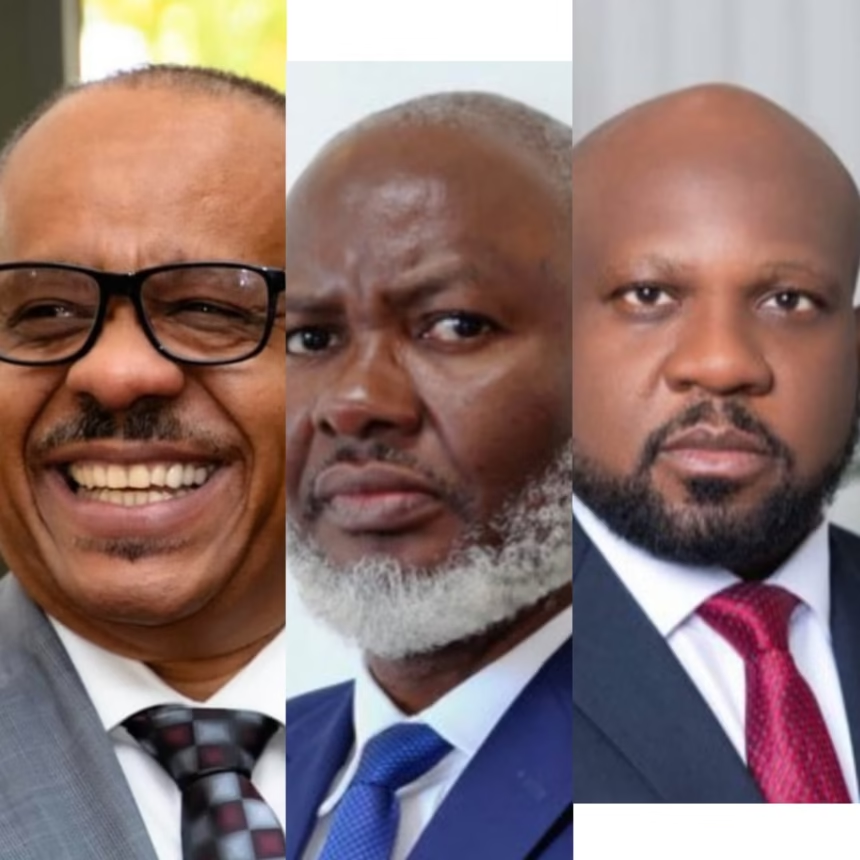The three counselors serving on the Presidential Transition Council (CTP) can now breathe a sigh of relief. They have garnered not only the backing of their fellow co-presidents but have also found the judicial system working in their favor.
On Wednesday, February 19, 2025, the Port-au-Prince Court of Appeal delivered its verdict regarding the National Bank of Credit (BNC) case.
The Court invalidated the summons warrants that investigative judge Benjamin Félismé had issued in December 2024 against the three presidential advisors: Emmanuel Vertilaire, Smith Augustin, and Louis Gérald Gilles. The judges based their decision on the advisors’ positions as presidential counselors, asserting that such officials cannot be tried in regular courts. Instead, their cases must be directed to “a specialized jurisdiction,” as stated in the Court of Appeal’s ruling.
The Court determined that Judge Félismé’s warrants violated the 1987 Constitution’s stipulations, which detail specific procedures for prosecuting Executive members and high-ranking officials accused of serious misconduct. These cases fall under the exclusive purview of the High Court of Justice, a specialized tribunal comprising Senate members and presided over by the Court of Cassation’s president.
Consequently, the Court of Appeal instructed Judge Félismé to proceed with the investigation while adhering to the proper constitutional protocols. This ruling raises crucial questions about Haiti’s judicial system, particularly concerning judicial autonomy and anti-corruption efforts.
The arrest warrants remain active for Pascal Raoul Pierre-Louis, the former BNC board chairman, and Lornick Léandre. According to the Anti-Corruption Unit’s (ULCC) investigation into the 100 million gourdes scandal, Pierre-Louis faces charges of active corruption and bribery, while Léandre stands accused of complicity in these activities.
Various civil society groups, including the National Network for the Defense of Human Rights (RNDDH), have voiced their apprehensions about this ruling. They emphasize the potential for political meddling and stress the necessity of maintaining judicial independence. The RNDDH has specifically denounced certain actions by the Port-au-Prince First Instance Court’s public prosecutor’s office as “scandalous.”
Attorney and political figure André Michel contends that the Court of Appeal’s decision should not be interpreted as a victory for the three presidential advisors implicated in the Bank corruption case. “Emmanuel Vertilaire, Louis Gérald Gilles, and Smith Augustin have received what amounts to a poisoned chalice,” the activist lawyer stated. “The Court of Appeal acknowledged the investigating judge’s jurisdiction. The Court did not nullify the summons warrants issued against the three Advisors-President,” Michel explained, further noting that “the Court merely declared the summons warrants ineffective during their current tenure as Advisor-President.”
Taking to his X platform (previously known as Twitter), Attorney André Michel emphasized that those accused of corruption will inevitably have to answer for their alleged misdeeds. “While acknowledging the investigating judge’s authority, the Court has temporarily suspended the execution of the summons warrants against the Presidential Advisors. However, they will be required to appear before the Investigation Office once their current positions conclude,” Attorney Michel elaborated.
This situation underscores the significant hurdles within Haiti’s judicial framework, particularly concerning anti-corruption initiatives and adherence to constitutional protocols. Furthermore, it highlights the pressing need to bolster judicial institutions to ensure equitable justice and maintain the rule of law throughout the nation.
The investigation, spearheaded by the Anti-Corruption Unit (ULCC), has leveled serious accusations against the three presidential advisors: Smith Augustin faces charges of forgery and utilizing forged documents, Emmanuel Vertilaire stands accused of passive corruption, and Louis Gérald Gilles is similarly charged with forgery and use of forged documents. Despite these allegations, the advisors continue to receive unwavering support from their CTP colleagues.







